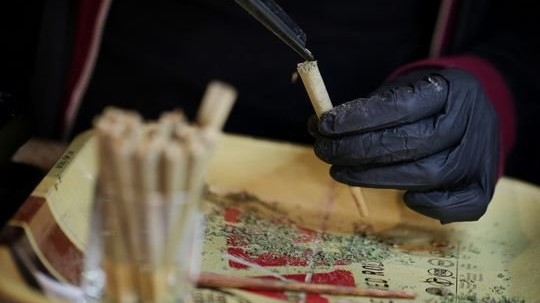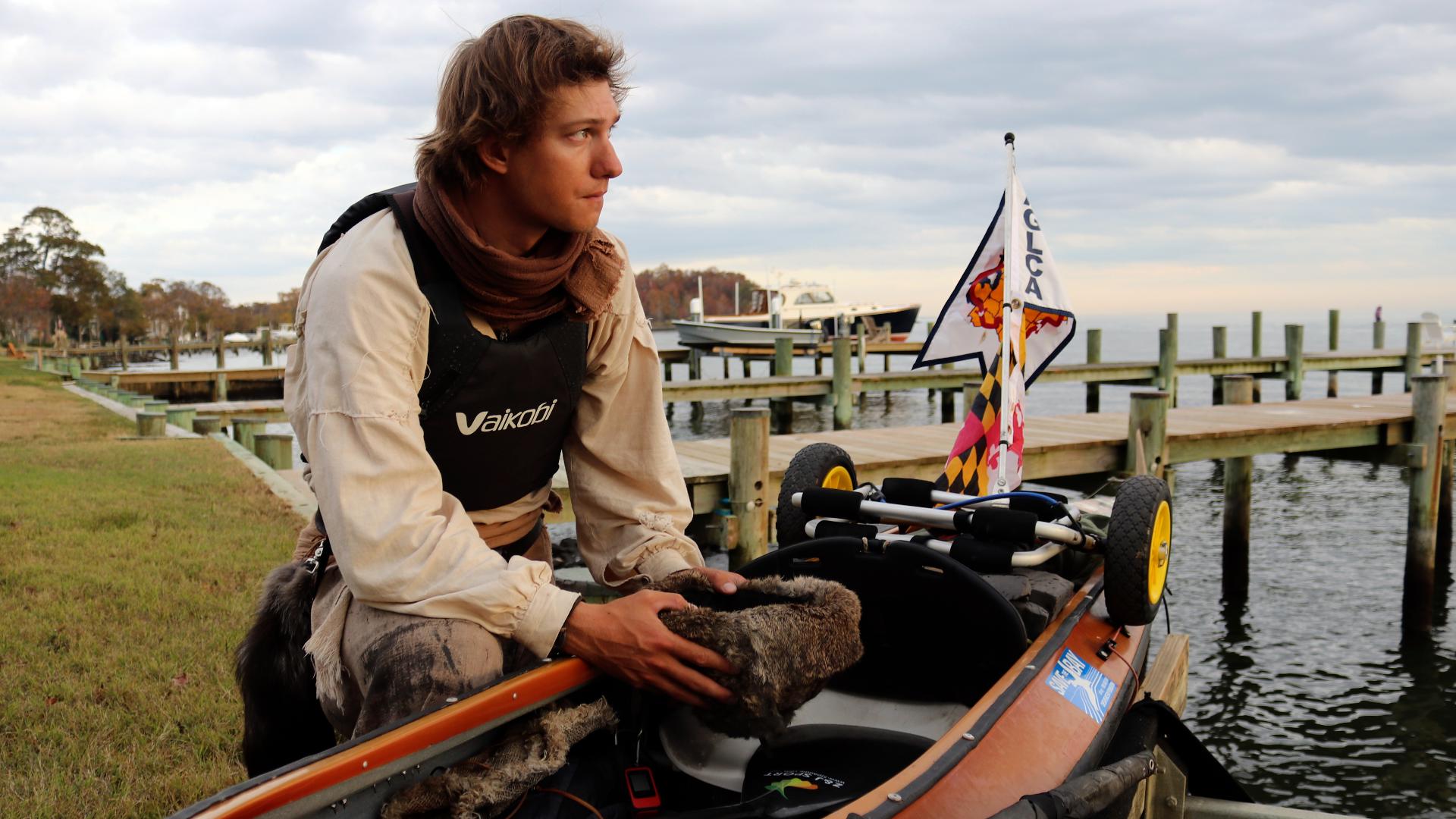Kirk Reid worries that a state licensing board will force him back into the shadows.
The Ann Arbor resident has been a medical marijuana card holder since 2009 and has been depending on pot dispensaries in Ypsilanti and Ann Arbor to get the product that helps him deal with the multiple sclerosis that he was diagnosed with in 2004.
"It calms me down. It takes my pain away. Without it, I’d probably end up at the hospital or go to the black market," said Reid, 47. "And I really don’t look forward to having to go to high schools or college campuses to look for marijuana."
He may be without it in the near future if two members on the Michigan Medical Marijuana Licensing Board have their way. Board chairman Rick Johnson, a former speaker of the House of Representatives, and board member Don Bailey, a retired Michigan State Police officer, want to shut down dispensaries for the next few months until the board begins handing out licenses next year.
The move could leave hundreds of medical marijuana dispensaries across the state shuttered and thousands of patients with no place to get the pot they use to help with a variety of ailments.
The Reef, a medical marijuana dispensary in Detroit, plans to close Monday, at least for the time being, as a pre-emptive strike.
Other dispensaries around the state are waiting and watching. Genevieve, the manager of the Third Coast caregiver center in Ypsilanti who declined to give her last name, said the impact could be harmful for the patients who use her shop.
"We're in good standing," she said about the permit the shop got from the city in 2009. "For a lot of people, we're within walking distance. A lot of people will be really devastated" if the state starts shutting down the dispensaries.
Even if the five-member board, which is to meet at noon on Tuesday in Bath Township, doesn’t shut down the dispensaries — the state is still reviewing whether it has the authority — it does have the power to grant or deny a license. And Bailey and Johnson have said that any business that continues to operate before state-sanctioned licenses are approved could be denied a license.
That’s an even bigger threat to dispensaries around the state. They might be able to survive shutting down for a few months, but will be out of business altogether if they can’t get a license.
“We’re shutting down on Monday because we want to show them that we’re trying to do the right thing,” said Tim Campbell, one of the owners of the Reef, the dispensary in Detroit where 11,000 people with medical marijuana cards get their weed, oils and edibles. “We’re trying, more than anything, to be compliant with the licensing board and LARA (the state Licensing and Regulatory Affairs Department)."
Other members of the board have expressed concern about how existing dispensaries should be handled as they develop rules for licensing in addition to the well-being of the patients who rely on dispensaries for their marijuana products.
The state's Bureau of Medical Marijuana Regulation, in conjunction with the state Attorney General's Office, is reviewing the prospect of shutting down currently operating dispensaries, said Jason Moon, a spokesman for LARA, and will make recommendations "on how to best implement any potential actions to ensure that patients are protected and the delivery of services to licensees are fair and efficient."
At the heart of the confusion is Michigan's medical marijuana law, which was approved by voters in 2008.
Under that law, caregivers are licensed by the state and can grow up to 12 plants for each of five patients who have state-approved medical marijuana cards. At the end of 2016 in Michigan, there were 218,556 people with medical marijuana cards and 38,107 caregivers.
In 2013, the Michigan Supreme Court ruled that the state's medical marijuana law did not allow for the cannabis to be bought or sold in shops, leading to law enforcement in some areas to shut down dispensaries. Other communities interpreted the ruling differently and said dispensaries in their towns were "caregiver centers" that were providing product to their patients.

Law enforcement, the state Legislature and local communities have been grappling with how to deal with medical marijuana and how it’s used, manufactured and sold. In one of the latest rulings by the Supreme Court on a medical marijuana case last year, the justices urged the Legislature to untangle the maze.
After several tries over four years, the Legislature finally approved bills in 2016 that regulate and tax medical marijuana. Communities can decide whether they want marijuana growers, processors, sales and transport businesses in their towns. Five categories of licenses were created under the new law, but applications for those licenses won't even be available until Dec. 15, and the licensing board won't start issuing licenses until sometime next year.
Michigan is one of 29 states that allow for medical marijuana, while marijuana is fully legal in eight states.
Caught in limbo are the dispensaries that operate in cities like Detroit, Ferndale, Ann Arbor, Grand Rapids, Lansing, Muskegon, Flint and other areas across the state.
At the last licensing board meeting last month, Bailey said he wants dispensaries to shut down. He believes they're operating illegally and will have an unfair leg up on the medical marijuana market once licenses begin to be issued.
"Every dispensary out there is in open violation of the act," he said. "In order to get a handle on this going forward, they have to be shut down right now. And for those anticipating getting into the business, nobody should have a 40-yard advantage."
In Detroit, corporation counsel Melvin Butch Hollowell said eight "caregiver centers" have gone through a rigorous licensing process and have been approved to operate by the city. Another 75 centers are in the application process and still operating, and 163 centers have been shut down because they haven't complied with city building and zoning ordinances.
"We have allowed for caregiver centers under the medical marijuana law, and you don't need a state license to be a caregiver center," Hollowell said. "We believe we have a responsible and rational basis for what we’re doing."
Ted Visner, a licensed caregiver and owner of QPS, a hobby farm in Pinconning that serves patients with medical marijuana cards, says he's compliant with the state law and wants to continue operating as he has been for the last nine years.
"I’m licensed by the state to assist qualified patients, and that’s what I’m doing. We don’t call ourself a dispensary. We’re a hobby farm," he said. "We don't want to be a commercial business."
But he does fear the commercialization of the medical marijuana business and the impact it might have on his small operation.
"These huge moneyed sources that are buying commercial real estate so they can grow a bazillion marijuana plants is going to change the landscape," Visner said.


Reid just wants the opportunity to continue to use the medical marijuana that has kept him out of the hospital and off opioids such as oxycontin.
"If it’s working for me, why would you want to take that away?" he said. "This is actually saving a lot of money because I’m not in the hospital all the time."
The dispensaries are the businesses that have taken all the risk to make it easier for patients to get their meds, he said, and should be protected.
"They are the pioneers. They should have the first go at a license," he said. "They're the ones who have had to worry for years about somebody coming in and kicking their doors down."
At the Reef, a temporary shutdown will be inconvenient, but not fatal.
"We’ll be able to survive, but most probably won’t," Campbell said. "The city put us through the wringer to get a license. And even though were one of only a few licensed in the city of Detroit, the state still looks at us as operating illegally."
The Michigan Medical Marijuana Licensing Board meeting begins at noon Tuesday at the Eagle Eye Banquet Center in Bath Township. It is open to the public.


